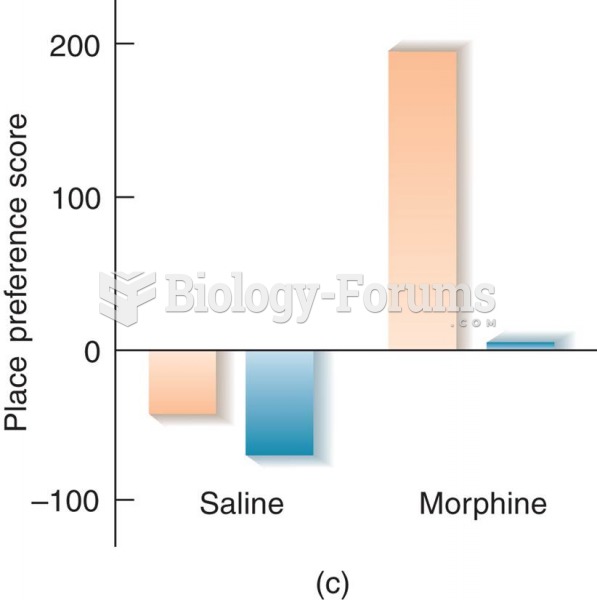|
|
|
Bacteria have flourished on the earth for over three billion years. They were the first life forms on the planet.
A recent study has found that following a diet rich in berries may slow down the aging process of the brain. This diet apparently helps to keep dopamine levels much higher than are seen in normal individuals who do not eat berries as a regular part of their diet as they enter their later years.
There are 20 feet of blood vessels in each square inch of human skin.
For pediatric patients, intravenous fluids are the most commonly cited products involved in medication errors that are reported to the USP.
The types of cancer that alpha interferons are used to treat include hairy cell leukemia, melanoma, follicular non-Hodgkin's lymphoma, and AIDS-related Kaposi's sarcoma.







